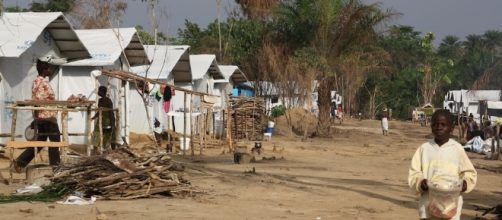When President Donald Trump came into Office on January 20th the focus of attention was basically on the Middle East, the Russian interference and also on Asia. Yet the continent that could well be a source of more problems in the future is Africa which presents a number of differing problems for the world’s superpowers.
Libya
After the fall of Muammar Ghedaffi in 2011 after an international intervention the country has still to find a stable government. The Islamic State attempted to use the opportunity to set up a forward base in Derna and Sirte, but failed.
In the meantime Western countries are considering once more intervening in the country as it is a major source disruption of Europe. Criminal gangs in Libya are the major source of the refugees that reach the Old Continent through Italy which cause innumerable deaths every week.
Until the internal situation is settled Libya will continue to be a thorn in the side of Western countries, particularly in Europe.
Zimbabwe
The former British colony once known as Rhodesia has been under the dictatorship of Robert Mugabe since 1980 and his rule has been one of controversy and death.
Unlike South Africa’s Nelson Mandela, his eleven years as a political prisoner did not change his fighting character and he does not hide his hatred for white people, nor his intolerance for any form of opposition in the country.
Yet, like all dictators, time is slowly defeating him and Mugabe will soon celebrate his 93rd birthday. In all probability the opposition will await his death in order to give the country a new face, but at all too often happens in Africa, the passing of a strong leader will draw the hyenas and Zimbabwe will undoubtedly once more suffer violence and death.
South Sudan
On Tuesday the United Nations declared that famine had struck large areas of South Sudan and add to the death toll created in the course of the current round of fighting between the Sudan People's Liberation Army (SPLA) loyal to President Salva Kiir and the SPLA in Opposition backing First Vice-President Riek Machar.
This situation is a result of the split which occurred when South Sudan broke away from the rest of Sudan in 2011.
These conflicts had already added to the waves of migrants from Africa and the Middle East that have caused such disruption to Europe in recent years.
As with Libya, the world had to decide what action it can take to bring lasting peace to this troubled region of Africa. To these countries we must also add Burundi and the Central African Republic whose crises are contributing to the refugee crisis in Africa.
The ghosts from the past
It would be possible to go on with other cases from Africa, but these are sufficient to make us understand that the continent is a complex tapestry of rivalries and conflict. Yet, it is also the proof that the West has still to front up to many ghosts that still haunt the continent.
Libya, Zimbabwe and Sudan are only three of the former European colonies that make up the continent's political map. The ghosts of the many years of exploitation and division by the former masters are still being felt and will continue to do so for well into the future.
The national borders were not drawn up according to traditional tribal areas and in addition the important mineral resources in many countries are often owned by European and other foreign powers, so the continent is not allowed to find its own solutions to problems.
International interventions in Libya, Ruanda, Chad and other African countries show that the former masters do not want to lose their influence, or the sources of important products for their industries.
When World Leaders such as Donald Trump, Russia’s Vladimir Putin and Germany’s Angela Merkel meet, they should not only consider their own economic positions but look to finding a solution that will allow Africans to finally truly govern themselves.
Until this happens, African refugees and migrants will continue to be an international problem.

